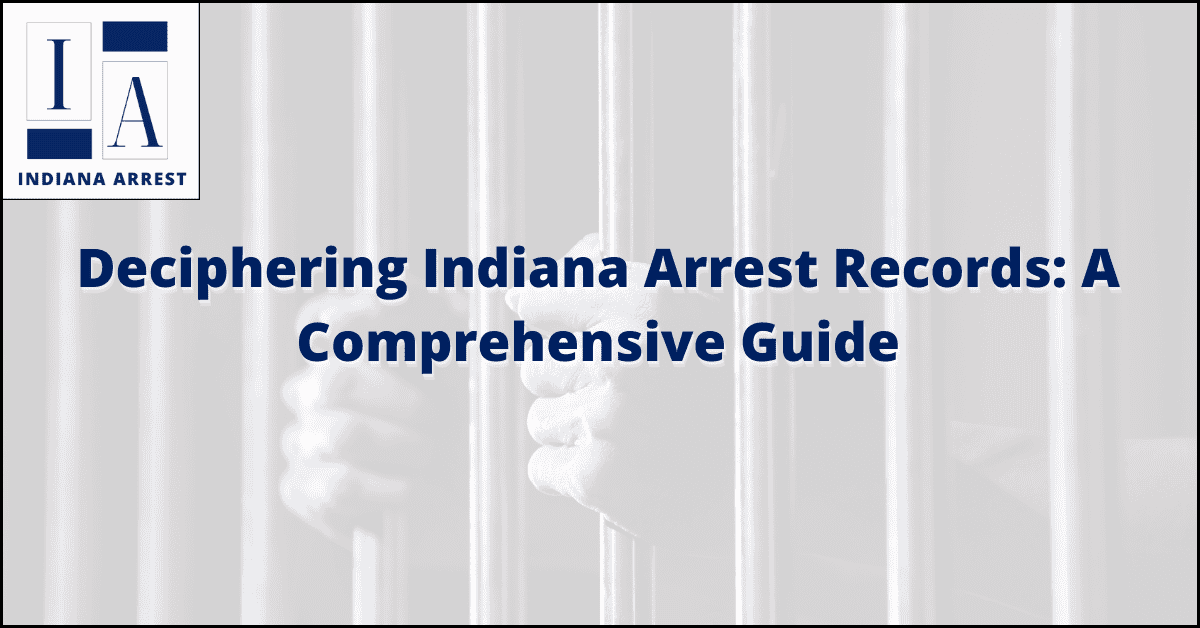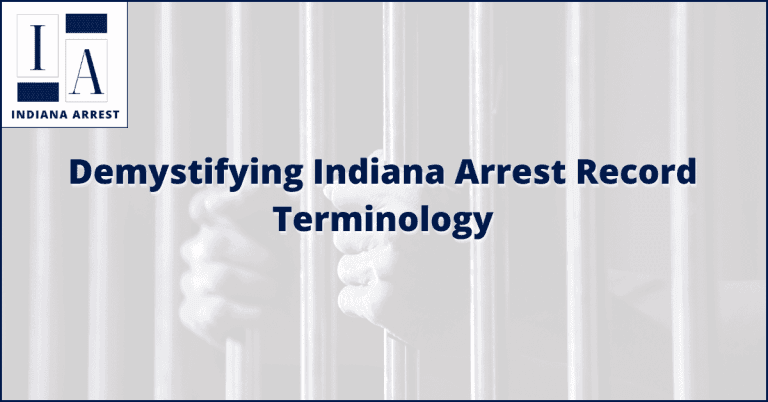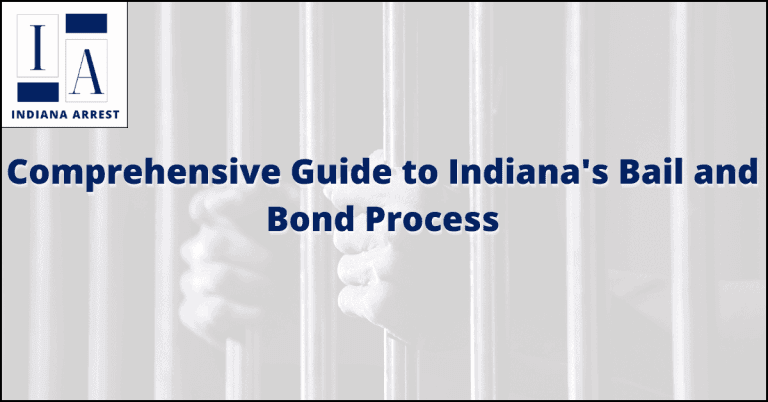Indiana Arrest Records: A Comprehensive Guide
Understanding the complexities of Indiana arrest records is crucial for both legal professionals and individuals seeking insights into the criminal justice system. These records provide valuable information about arrests, charges, and legal procedures within the state. In this comprehensive guide, we will delve into the nuances of Indiana arrest records, shedding light on their significance, accessibility, and the valuable insights they offer.
Before exploring the specifics of Indiana arrest records, let’s first understand the foundational aspects that shape the landscape of criminal records in the state. These records play a pivotal role in maintaining transparency, protecting individual rights, and ensuring public safety. By gaining a clear understanding of arrest records, individuals can navigate through criminal proceedings, legal terminology, and the broader implications of arrests in Indiana.
What Are Indiana Arrest Records?
Indiana arrest records consist of a comprehensive collection of documents related to arrests that have occurred within the state. These records serve as a historical repository of law enforcement activities, providing details about arrests, charges, and subsequent legal actions. They are crucial for tracking an individual’s interactions with the criminal justice system, offering insights into criminal behavior patterns and law enforcement practices.
Importance of Accessible Arrest Records
Accessible arrest records are integral to open governance and accountability. They empower individuals to monitor law enforcement activities, ensuring the preservation of due process and civil liberties. By granting public access to these records, Indiana promotes transparency and trust between its citizens and the criminal justice system.
Legal Framework Governing Arrest Records
Indiana’s legal framework outlines the guidelines for collecting, maintaining, and disseminating arrest records. The Indiana Access to Public Records Act (APRA) underscores the importance of government transparency and provides individuals the right to access certain public records, including arrest records. This legal framework strikes a balance between public accountability and the need to protect sensitive information.
Navigating Indiana Arrest Records Online
In the digital age, accessing information has become more convenient than ever. Indiana offers online platforms that allow individuals to search and retrieve arrest records electronically. This accessibility fosters efficiency and ensures that valuable information is readily available to those who need it. Various law enforcement agencies and databases provide user-friendly interfaces for searching and obtaining arrest records.
Interpreting Arrest Records: Charges and Terminology
Interpreting arrest records involves understanding the charges and terminology used in the documents. Charges are categorized as either misdemeanors or felonies, each carrying distinct legal implications. Familiarizing yourself with legal terminology can help you comprehend the nature of the arrest, the severity of the charges, and potential legal consequences.
Expungement and Record Sealing in Indiana
Indiana offers provisions for expunging and sealing arrest records under specific circumstances. Expungement allows eligible individuals to have their records removed from public view, giving them a fresh start after meeting certain requirements. Record sealing, on the other hand, restricts public access to the records, but they are still available to law enforcement agencies.
Maintaining Accuracy and Confidentiality
Ensuring the accuracy of arrest records is essential for maintaining public trust and safeguarding individuals’ rights. Law enforcement agencies and record-keeping entities strive to maintain up-to-date and accurate information. Additionally, the confidentiality of sensitive information within these records is crucial to protect the privacy of individuals involved.
FAQS
What information is included in Indiana arrest records?
Indiana arrest records typically include:
- Personal details of the arrested individual (name, date of birth, gender).
- Details of the arrest (date, time, location).
- Charges filed against the individual.
- Booking information (mugshot, fingerprints).
- Arresting agency and officer.
- Court information and case status.
- Any bail or bond information.
How can I access Indiana arrest records?
You can access Indiana arrest records through several methods:
- Online databases: Use the Indiana State Police’s online search tools or third-party public record websites.
- County Sheriff’s Office: Contact the county sheriff’s office where the arrest occurred for records specific to that jurisdiction.
- Indiana Courts Online Case Search: Use the mycase.IN.gov portal to search for court records associated with arrests.
- Public Records Request: Submit a public records request to the appropriate law enforcement agency or court. Be prepared to provide specific details to facilitate the search.
Remember, access to certain details may be restricted based on privacy laws and the status of the case.
How can I request a copy of someone’s arrest record in Indiana?
To obtain a copy of someone’s arrest record in Indiana, you can submit a request through the relevant law enforcement agency or the Indiana State Police. Some records may be accessible online through official databases, while others may require an in-person or written request.
Can I expunge an arrest record if the charges were dropped?
Yes, in many cases, you can pursue expungement of your arrest record if the charges against you were dropped or dismissed. The expungement process allows eligible individuals to clear their records from public view, helping them move forward without the stigma of an arrest.
How long do arrest records remain on file in Indiana?
\Arrest records in Indiana may remain on file indefinitely unless they are expunged or sealed. Expungement and sealing processes provide eligible individuals the opportunity to have their records removed from public access after a certain period, depending on the nature of the arrest and the outcome of the case.







